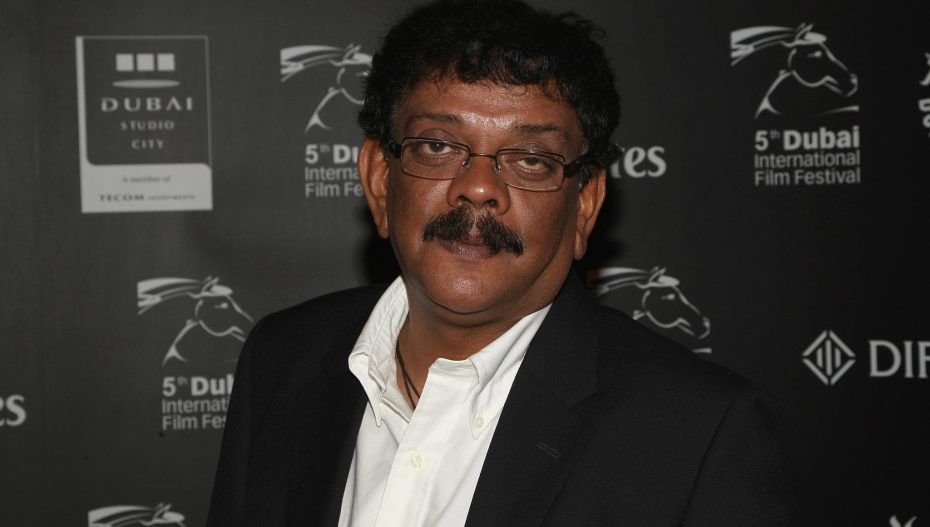This year, your war epic, Marakkar: Lion of the Arabian Sea, bagged three National Awards – for Best Visual Effects (bagged by your son Sidharth), Best Costumes and Best Feature Film. Quite a high?
(Laughs) All awards are encouraging because they make you feel you are still good. Otherwise, you start wondering if you are finished. Awards ensure there are no such doubts.
It’s interesting that on one side, you make these crazy comedies like Hera Pheri, Hulchul, Hungama, Garam Masala and Malamaal Weekly, whilst on the other, there are films like Kanchivaram and Marakkar…
I make two kinds of films for two different types of audiences.
And would you say you have bridged the gap with Marakkar, which is pure cinema?
No, there is also a gap. Marakkar is the story of a real, 16th-century man. (Mohammad Ali Marakkar aka Kunjali Marakkar IV, the first Indian naval commander who valiantly defended the Malabar Coast against Portuguese invasion). We recreated that era, the many naval wars he fought, as best as we could. But there was still criticism from some quarters. I am told that the costumes could have been more realistic; I argued – back then, women in Kerala did not wear blouses. Could I shoot them that way and hope to release the film? When you are creating something for a social platform, you make certain compromises. Even when you are reliving history, the references to the period are often vague; in this case, there were no pictures of the man as photography had not evolved then. So, then, you imagine certain things, exaggerate others, and at times, are influenced by other films from that period.
Is making a film like Hungama 2 easier than doing a Marakkar?
Oh no, it’s the most difficult of the things to make people laugh. It’s easy to make a ghost story that will give people jitters. It’s easy to make a suspense thriller with many twists. It’s easy to make an emotional drama where you have no way of knowing if everyone in a theatre is enjoying it. But in a comedy, if no one laughs, you know then that they don’t like the film. People’s reaction to a laugh riot is instantaneous, which makes the task that much more difficult. Here you know your viewers are not going to mull over what they saw at home. The minute they walk out of the theatre, the film is over for them. And in the time that they are in the theatre, they should take home entertainment or else the film is a flop. Scripting Hungama 2 was infinitely arduous than Marakkar.
Is that why Hungama 2 took so long to come to the screen, 18 years after Part 1 (a 2003 release)?
Hungama is a remake of my Malayalam film, Poochakkoru Mookkuthi, which was released in 1984. I never wanted to spin a sequel, not even with Hera Pheri or Bhool Bhulaiya. But I am returning to Hindi films after seven years and I know that people are expecting another comedy from me. Even the security at the airport asks me when am I making another comedy. So, I thought, why not give them what they want.
But Hungama 2 is not a sequel. It’s not a continuation of the 2003 film, but a new plot with the same treatment as the original. There’s confusion, comedy of errors, slapstick, a similar screenplay.
Hungama 2 premieres on Disney+ Hotstar on July 23. Is OTT giving filmmakers new avenues and a more evolved audience?
During my time, it was difficult easy to go behind the camera. Today, everyone carries one in their pocket. All you need is imagination and a platform to showcase your film. Theatre refuses dates and screens to small films. So, OTT is a good platform for aspiring filmmakers to test their calibre.
What is your opinion on the government’s censor policy, which has many filmmakers up in arms in what they believe to be a violation of our Constitutional right to Freedom of Speech and Expression? Should they interfere after the CBFC has certified the film?
I have inquired about this and learnt that what is out is just a draft. It’s not a policy or a rule as yet. According to the reactions the Centre gets from the film industry, they will make the necessary corrections.
What is it like for someone as prolific as you who has averaged three-four films a year to be cooped up at home? Did you do a lot of writing during the lockdown?
No, I couldn’t write. It was very upsetting; you can’t create at a time like this. I had never imagined I would see something like this in my lifetime. The pandemic has taught us never to be arrogant; it’s important to be nice to people. Don’t ever say I will do this, and I won’t do this. Nothing is in our hands. Everything is pre-decided for us. We are just going through the cycle of our destiny.













